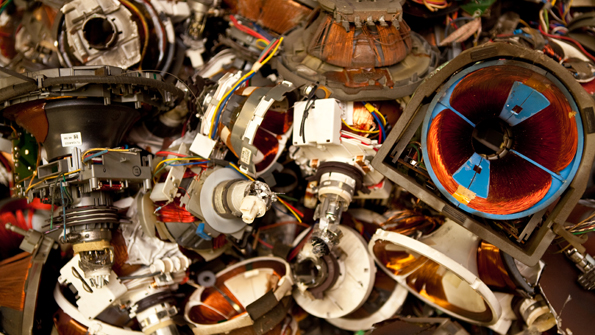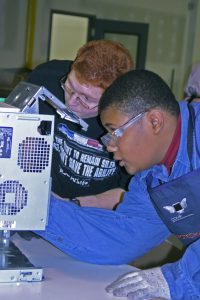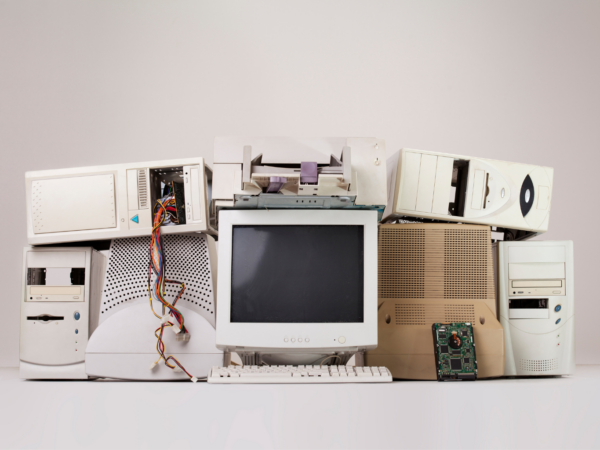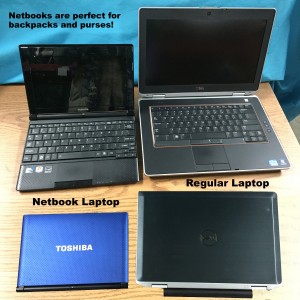
 There are currently 25 states with “electronic take-back” programs. Michigan is one of them. These programs differ, but most require manufacturers of electronic devices to pay for the proper recycling of “covered” devices. A “covered” device is a product that has the potential of causing significant environmental harm if improperly handled. In Michigan, covered devices include CRTs, flat-screen displays, laptops, desktop computers, and printers.
There are currently 25 states with “electronic take-back” programs. Michigan is one of them. These programs differ, but most require manufacturers of electronic devices to pay for the proper recycling of “covered” devices. A “covered” device is a product that has the potential of causing significant environmental harm if improperly handled. In Michigan, covered devices include CRTs, flat-screen displays, laptops, desktop computers, and printers.
Most state “take-back” laws, including Michigan’s, are relatively weak and not strictly enforced. Although manufacturers do not want their products to cause harm, the costs of complying with the law discourage their doing so. As a result, electronic manufacturers have reduced their financial commitment to the recycling industry. Across the US, due to diminishing revenues, many electronic recyclers have gone out of business, while others have had to increase prices just to cover their costs. Falling commodity prices and rising recycling service costs have also contributed to this problem.
There is another complicating factor surrounding this issue. Typically, manufacturers do not pay the full cost of collecting and processing the covered device, thus burdening the recycler with that expense. Manufacturers generally contribute roughly half of the costs. Michigan law requires that the manufacturers provide “free” collection services to the public, but the only way for this to be financially feasible would be for the manufacturers to pay considerably more of the costs, or for the lawmakers to remove the word “free” from the law so that users and possibly government waste agencies can contribute as well.
In light of all of these factors, manufacturers, who are profiting from the sale of hundreds of thousands of electronic devices, should be helping Michigan recyclers serve and protect the public by bearing a larger portion of recycling costs. This is money that could be used to lower the cost for citizens who want to recycle responsibly, which will help keep toxic metals, like lead, and harmful chemicals from polluting our environment.
If I were to summarize the current status of the Michigan electronic take-back program as concisely as possible, I would say that, in general, the electronics manufacturers have not historically met the requirement of current Michigan law to provide “free and convenient” recycling of electronics, based on a percentage of the weight of their products sold in the state. This is because the manufacturers’ support has never covered the true cost of the safe recycling of the products they made. Current Michigan law is too weak to compel manufacturers to do so, and little political will exists on the part of our lawmakers to change the law in a way that holds the manufacturers accountable. Because of these realities, combined with a steady fall in the value of the commodities from recycling, the Michigan electronics recycling industry has had to structure their pricing assuming zero help from manufacturers.
Should electronic manufacturers be involved in the recycling of the product they make? Absolutely. A manufacturer/retailer whose product responsibility extends throughout the entire life of the product will make a better and safer product. Manufacturers will respond with a solution once they understand the expectations of the marketplace.
What’s the answer? We think a new Michigan Take-Back law with a shared cost responsibility makes sense – one where money from a manufacturer can be combined with money from a user and or a governmental entity. The word “free” within the current Michigan law must be removed. Unless manufacturers are forced to pay much more, or Michigan adopts a fee structure paid by the buyer of electronics upon purchase (similar to California’s), free recycling of electronics is not achievable and discourages manufacturer support.
What can you do to help? Use a responsible and certified recycler. Encourage Steve Noble at the Michigan DEQ’s Electronics Division as he pushes for a more effective law. Ask your State Representative and Senators to learn more about this important issue. Finally, feel free to encourage lawmakers to contact me, Scott Vander Kooy, at Comprenew for more information.
Let’s keep “Pure Michigan” that way.
Thank you,
Scott Vander Kooy President, Comprenew



